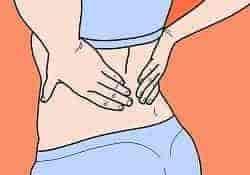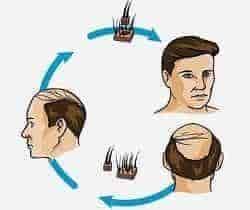Fever

What is fever? How to treat fever? What are the different causes of fever? Can fever be treated at home?
Fever is also called as pyrexia. Fever means when temperature of body rise more than normal like above 99-99.5 °F conditional on the time of the day. Normal body temperature varies in the day, like it may rise in the evening times. Other factors that contribute in increase of body temperature are menstrual cycle of woman, in this temperature may rise by 1 degree or more than that, more of physical activity, high level emotion, thick clothing, some medicines, room temperature which is high, and more humidity.
Fever is a significant symptom of the defense against infection generated by immune system of the body. Most infections which are caused by bacteria and viruses in individuals flourish at 98.6°F. Fever fights for the person not against the person. There can be Brain damage from a fever when the fever is above 107.6°F.
A fever always comes with other symptoms. It mostly come along with specific complaints, which may help to diagnose the cause of the fever, which in turn help doctor to treat accordingly.
Following are some fever measurements:
For adults:
- 100 F-101 F is considered as range of low grade fever.
- 102 F is intermediate fever grade
- 104 F-107 F or higher are considered as high grade fever or dangerous temperature.
Body temperature can be measured at different sites and hence it varies slightly. Like when measured through ‘rectal temperature’ it inclines to be slight raised. Oral and temperatures measured at armpit can be estimated as real body temperature and it is commonly used method in adults.
Causes of fever:
- There are many causative factors of fever like Infectious agents, viruses and bacteria.
- Abuse of Amphetamine and withdrawal from alcohol can both provoke high body temperatures. And there can also be environmental fever which are related with heat stroke and other related illness.
- The hypothalamus which regulates the body temperature is activated by pyrogens which are floating biochemical substance, they flow from places where the immune system has recognized trouble to the brain (hypothalamus) through the bloodstream. Body tissues also produce some pyrogens and same is with pathogens they also produce some pyrogens. When the hypothalamus notices this, it conveys the body to produce and hold more heat, resulting in producing a fever. It is seen generally in Children get quicker and higher fevers, which is the pyrogenic effects upon non experienced immune system[4].
- Any infection like viral, bacterial, fungal leads to fever, most common infections are colds and gastroenteritis (infection of stomach).
- Infections of the lung, ear, throat, skin, urinary bladder and kidney
- Some inflammatory conditions also lead to fever
- Ill effects of drugs
- Cancers
- Different Vaccinations are the main cause of fever in children, which is temporary.
- Disease which are Autoimmune like rheumatoid arthritis, lupus, and IBD (inflammatory bowel disease)
- Hormonal imbalance like hyperthyroidism
- Prohibited drugs like amphetamines and cocaine
- Infections of bone like osteomyelitis and meningitis
- Urinary tract infections
- Teething may cause a slight increase in a child's temperature, but not higher than 100°F.
- Teething in small children may also lead to temporary fever.
Causes of fever in children:
Some common causes of fever in children are as follows:
- Some bacterial infections like scarlet fever, or sometimes which is rare is rheumatic fever[3]
- Some viral infections like flu
- There may be reason of fever from some medications also
- Heat exposure may also lead to fever in kids
- Some allergies
- Teething may cause a slight increase in a child's temperature, but not higher than 100°F.
Diagnosis of Fever
Symptoms of fever: [2]
Symptom is something which patient himself feel, there are different symptoms according to associated causative factors related to fever. Following are some common symptoms which accompany with fever:
- Decrease appetite (Anorexia)
- Sometimes dehydration
- Depression
- More sensitivity towards pain, which is also called as hyperalgesia.
- Fatigue
- Drowsiness or sleepiness.
- More sweating when fever goes down
- In high fever there is more irritability, sometimes more confusion, delirium and seizures (convulsions).
Treatment of fever at home: [1]
- Sometimes cold or viral infection can lead to high fever (102 - 104°F). So usually it doesn’t mean that you have serious problem. If you have mild fever and no other complain, then no treatment is needed. Drink plenty of fluids and take rest.
- There is nothing to worry if your child:
- Is still involved in playing
- Is eating well and also drinking well
- Is much alert and smiling back at you
- There is no change in skin color
- Looks well when fever is reduced
You should visit your doctor to lower a temperature if you or your kid is not comfortable, there is vomiting, dehydration, or unable to sleep well.
Some Do's and Dont's
- Do not cover up somebody who has the chills.
- Remove extra clothing or coverings. The room should be comfortable, avoid extreme of temperatures. Try single layer of lightweight clothing, and single lightweight covering for sleep.
- If the room is warm or airless, a fan may comfort.
- A lukewarm wash or sponge bath can help cool down someone with a fever. This is particularly effective after you have taken medication, else the temperature might rebound.
- Avoid cold baths, ice. These helps the skin to cool but mostly it creates the worse situation by producing shivering, which increases the core body temperature.
- While medicating your child you should know how much your child weighs, and always check the instructions which is written on the package for correct dosage.
- For 3 months or younger, always call your physician first before giving fever medicines.
Eating and drinking:
- All should drink plenty of fluids especially children, like water, soups.
- Avoid too much fruit juice or apple juice and don’t give sports drinks to younger children.
- Eating according to choice, do not force eating.
You should visit your physician immediately if:
- You Have a fever of 105°F (40.5°C) or higher, which is not coming down with treatment
- You Have a fever that remains at or keeps increasing above 103°F
- If you have a fever for more than 48 to 72 hours
- Have had fever on and off since a week or two.
- You have a serious medical disease, like heart problem, (sickle cell) anemia, diabetes, COPD, or other chronic lung problems
- If you have a fresh rash or bruises
- If you have pain while urinating
- If you are suffering with low immune system (from chronic steroid therapy, organ transplant or bone marrow, HIV, or any cancer treatment)

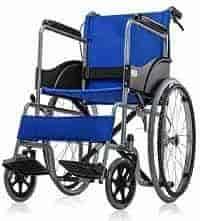
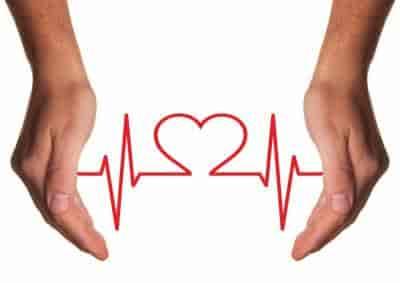

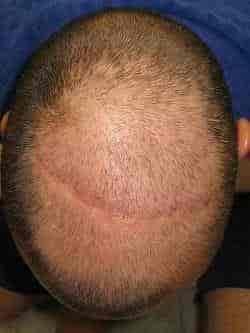
.jpg)


